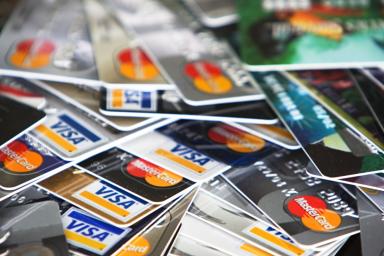What is the best way to use Facebook for a small business?
Facebook has stood the test of time as the number one social network on the planet and it’s still growing, with over a billion people logging in daily.
Whether your customers love Facebook or not, they can’t ignore it – so setting up a Facebook page for your business is useful if you want to stay connected and keep building relationships with customers.
Here are ten tips you can use to get the most out of Facebook for your business.
1. How to create a Business Facebook Page
It’s easy to get started building a Facebook presence for your business – you just have to create a Facebook Page.
Facebook Pages look similar to personal profiles but come with powerful tools specifically designed for brands and organisations.
When people “Like” your Facebook Page, any updates you post will show up in their News Feed.
This boosts visibility for your brand and ensures that people are always seeing new content from you.
It’s important to remember that Facebook doesn’t allow the use of personal accounts to represent businesses, which means it’s important that you create a Facebook Page instead.
If you’ve already set up a profile page for your business, make sure to switch it over so you stay within Facebook’s Terms of Service.
When you’ve built your Facebook page don’t forget to claim your vanity URL which you’ll need to make your URL recognisable and a part of your brand.
2. How to add a cover photo to your Facebook page
Facebook’s page design gives your business the opportunity to make an excellent first impression.
You can highlight a cover photo of 820 x 312 pixels to easily capture the attention of new visitors and get them interested in learning more about your page.
Your cover photo should be optimised for both mobile and desktop experiences, making sure that you stick to Facebook’s Page Guidelines for best results.
3. Choosing the right profile picture
When it comes to Facebook, having a recognisable profile image is key.
This profile image is pictured at the top of your Facebook Page, and it’ll also become the thumbnail image that gets displayed alongside posts and updates – so choose carefully!
Whether it’s a headshot of yourself if you’re a consultant or a logo for your business – both are easy to recognise whilst also standing out among the many other Facebook Pages.
Facebook has its own specifications when it comes to size: make sure your profile photo is 170 pixels by 170 pixels.
Having an easily recognised photo is especially important for Facebook Search, so don’t hesitate to select the one that will best draw attention.
4. Making the most of your ‘About’ section
One of the first places people will turn to when they visit your Page is the “About” section.
To quickly grab a visitor’s attention and make sure they stick around to explore more, it’s important to include a catchy and informative preview located on the left-hand side beneath your profile picture.
People can then click on the “About” tab for even more detail about what you do, so make sure that you really sell yourself here.
To edit your “About” tab, just hover over the section you’d like to change and click on the pencil icon.
Small tweaks in this area can have a big impact so don’t overlook it.
5. Listening to your audience
Facebook is a great tool for businesses to use for marketing, but it won’t be successful if you are only using it to talk at your audience without really listening or responding to what they have to say.
If you want to leverage Facebook and other social media platforms for marketing and make sure that your customers are happy, you’ll need to take the time and use listening tools so you can track mentions of your company, hashtags, and more.
With these tools in place, you will always know what is trending with your customers and how they feel about your business.
This is an essential component in any successful Facebook marketing strategy.
6. Making the most of Facebook Messenger
Facebook is a powerful tool for creating meaningful connections with your target audience.
Your Facebook followers are not just people scrolling through their News Feed, they’re members of your community who care about the content you share and the story your brand is telling.
Engaging with them directly by responding to their comments, reacting to their posts, or even sending them messages can be an incredibly effective way to build trust and foster relationships.
So don’t be afraid to reach out – you’ll create a more meaningful presence on Facebook and help increase brand awareness in the process.
Facebook has a great tool for businesses to easily connect with your customers: Facebook Messenger.
Not only is this tool helpful to reach out to prospective and existing customers, but if you respond quickly—within 15 minutes—to 90% of those who send messages, Facebook will reward you with the “Very responsive to messages” badge.
This badge is placed on your Facebook page below the cover photo, letting users know that you care about their needs and constantly answer them in a timely manner.
If your response rate comes close but isn’t quite as high, Facebook still gives potential customers insight into how quickly you respond.
7. Adding a Call-To-Action on your Facebook page
Facebook’s call-to-action button is a super handy feature that can help you further your business goals.
A call-to-action button allows you to link to different pages and landing pages that might otherwise be more difficult for your customers to find.
You can easily customise your Facebook Page with a wide range of seven pre-made buttons, such as ‘Sign Up’, ‘Shop Now’, and ‘Contact Us’.
It doesn’t just stop at linking through to pages either – you can also link directly to videos or even an online game.
8. Creating custom page tabs
Instead of using Facebook’s Timeline, About, Photos, Likes and More tabs by default, you can create your own custom tabs.
Creating custom tabs is an effective way to highlight important information and make navigation simpler for both you and your visitors.
There’s no limit to what a custom Facebook tab can do – from showcasing case studies to displaying offers or special promotions, custom Facebook tabs can be used in clever and creative ways.
You can even get creative and leverage them for recruiting purposes – for example, create a tab for “Jobs” that links to your jobs site.
To set up custom tabs all you have to do is sign in, head over to your Page, and click the “More” tab.
From there, you can select “Manage Tabs” from the dropdown menu, so you can start customising and creating new tabs as needed.
9. Setting appropriate page roles
If you intend others in your business help run your Facebook business page, you must grant access and assign them a role.
Select Page Roles from the Settings menu.
You’ll need to get the person to ‘like’ your Facebook business page with their personal Facebook account before you can add them to a role.
The roles you can assign are:
Admin – Provides complete control over every aspect of the page, including changing the roles of others. Ideally you should be the sole admin of your business page.
Editor – Allows the person to view insights, create posts, edit the page and send messages.
Moderator – The role is limited to sending messages and interacting with comments, such as deleting or responding to comments.
Advertiser – The role can create and publish Facebook ads for your business and view insights.
Analyst – This role can view insights and data about the page.
10. Considering Facebook advertising
Facebook can reach a highly targeted audience.
A good route is to use the Boost Post feature.
Boosting a post can be inexpensive – as little as £10 – and can reach thousands of people.
Create a post that you want to reach your target audience, such as a competition or special offer.
Once published, click Boost Post and use the advertising tools to refine the target audience.
Boosted posts can be used to encourage people to visit your website, or like and follow you on Facebook.
Similar to boosting posts, Facebook provides tools to advertise your Facebook page.
It’s more expensive – expect to pay from around £100 – but has the advantage of encouraging people to like and follow your Facebook business page.
This means any further posts you make to your business page will be seen by those that follow you.
Click Ad Center on your Facebook business page to learn about setting up and running an ad campaign.
Learn with Start Up Loans and boost your marketing skills
Want to market your start-up business? Check our free online courses in partnership with the Open University on effective marketing techniques.
Our free Learn with Start Up Loans courses include:
- Marketing in the 21st Century
- First steps in innovation and entrepreneurship
- Entrepreneurial impressions – reflection
Plus free courses on climate and sustainability, teamwork, entrepreneurship, mental health and wellbeing.
Tags related to this content:
Disclaimer: The Start -Up Loans Company makes reasonable efforts to keep the content of this article up to date, but we do not guarantee or warrant (implied or otherwise) that it is current, accurate or complete. This article is intended for general information purposes only and does not constitute advice of any kind, including legal, financial, tax or other professional advice. You should always seek professional or specialist advice or support before doing anything on the basis of the content of this article.
The Start-Up Loans Company is not liable for any loss or damage (foreseeable or not) that may come from relying on this article, whether as a result of our negligence, breach of contract or otherwise. “Loss” includes (but is not limited to) any direct, indirect or consequential loss, loss of income, revenue, benefits, profits, opportunity, anticipated savings, or data. We do not exclude liability for any liability which cannot be excluded or limited under English law. Reference to any person, organisation, business, or event does not constitute an endorsement or recommendation from The Start-Up Loans Company, its parent company British Business Bank plc, or the UK Government.
Your previously read articles
Sign up for our newsletter
Just add your details to receive updates and news from the British Business Bank
Sign up to our newsletter


